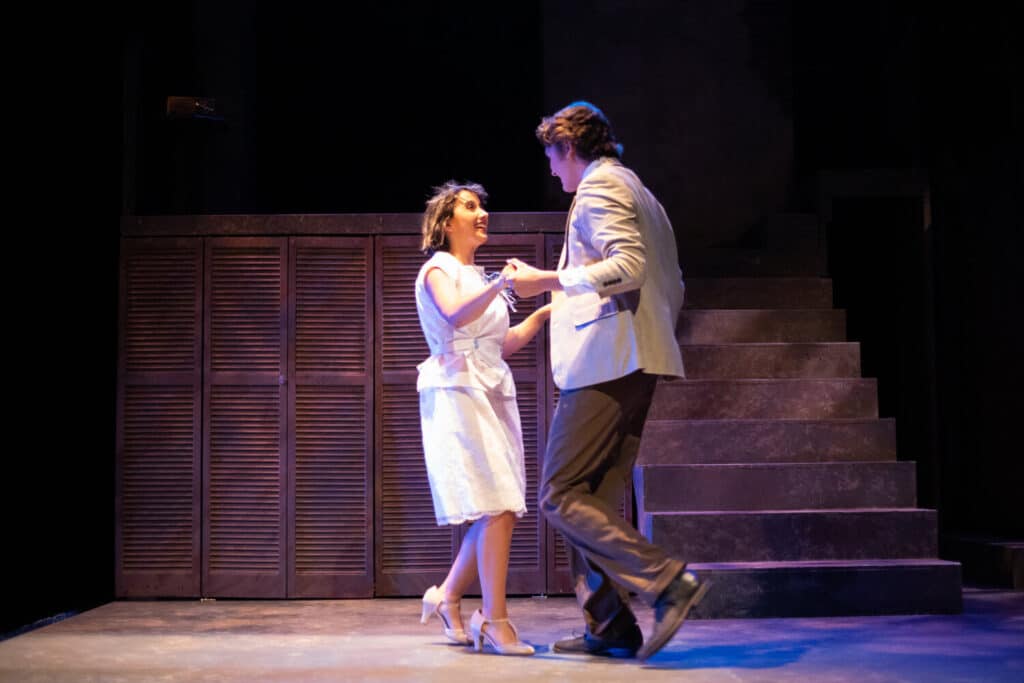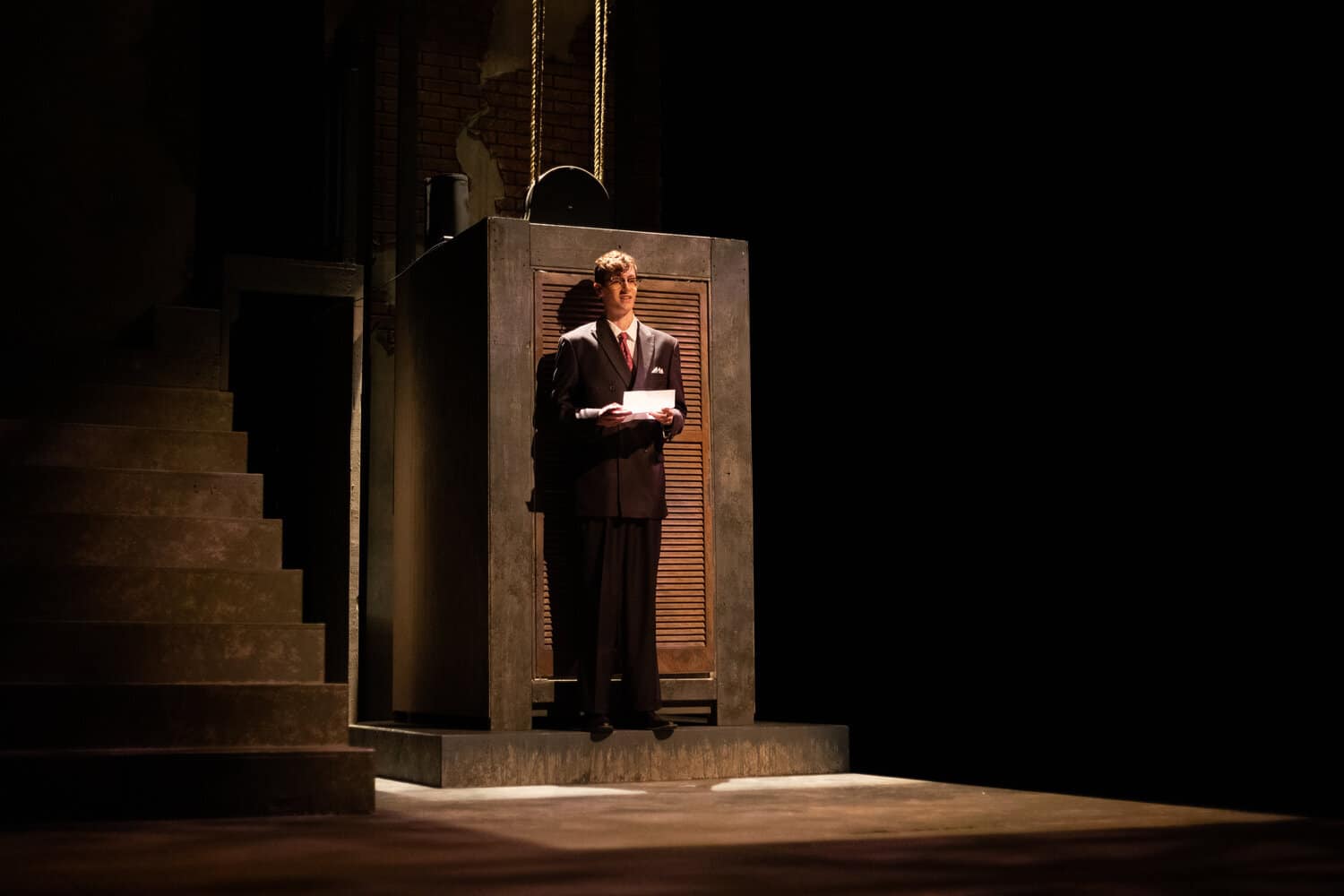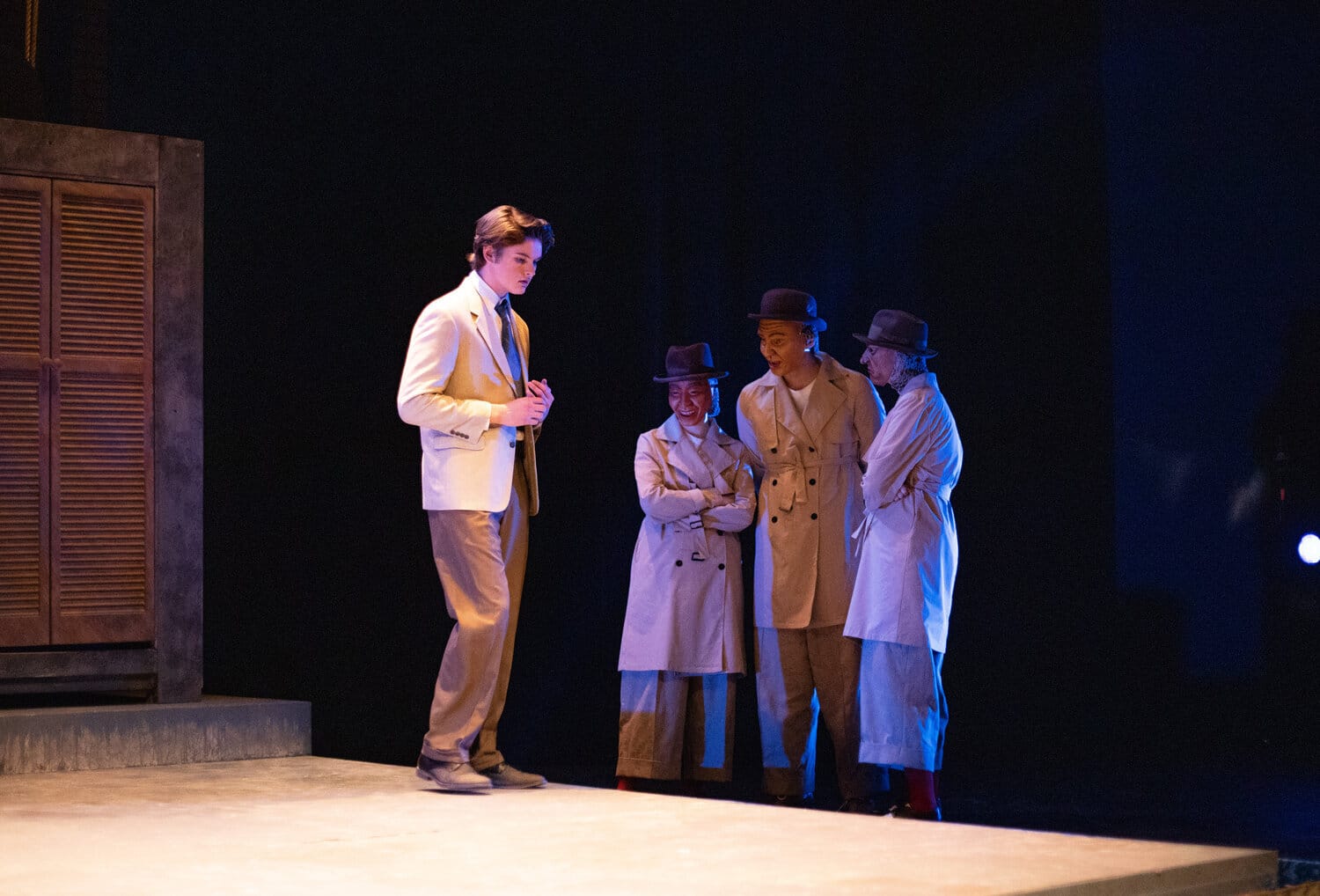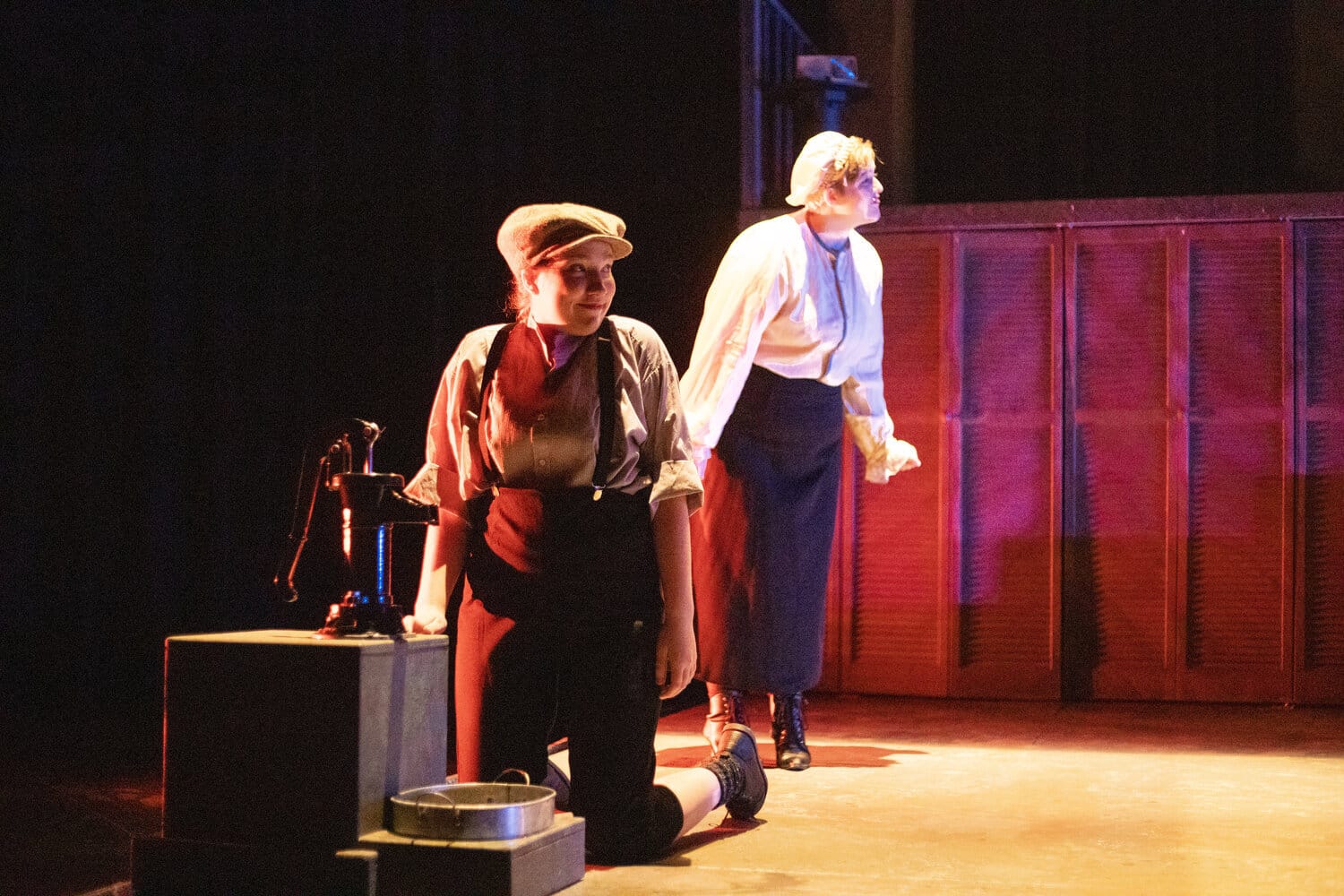
North Greenville’s Eurydice: acting at its best
Chase Bridges, Assistant Editor
The Billingsley Theatre was filled with haze. Dim lighting filled the room while a towering set looked down on its audience. North Greenville University’s production of Eurydice was a fantastic representation of what the university’s theatre department is capable of.
Eurydice retells the myth of Orpheus, an ancient Greek hero filled with the power of music. This time, however, the story is told from the perspective of his wife, Eurydice, who after an accident, ends up in the land of the dead. While there, she is reunited with her father, has run-ins with Hades, and tries to get back to her beloved Orpheus.
The set alone was enough to grab the attention of the audience. Lights shining down on a multi-leveled platform that represented both the earth and the underworld. An elevator positioned stage left filled with water that rained on the performers standing inside.
Walking around on this set, was a cast of actors and actresses that had obviously put the time and effort into their performances. Especially with the roles of Eurydice and Orpheus, played by Kara Hayes and Jacob Jones.
The two have immediate chemistry, playing the young and in love couple lying on a beach. The actors have enough range to show the differences between these two characters while showing their love for each other all the while adding layers to the relationship that the audience watches evolve.
Hayes’ performance of Eurydice as she travels to the underworld is to be compared to that of Dorothy in Oz. Filled with so much life and joy that it is impossible to not sympathize with her.
As she makes her way into the underworld, Eurydice runs into her father, played by JP Waynick. Waynick truly shines here as he plays the complex character so well, that every layer is visible to the audience. We watch a man who has been plagued with loneliness, reunite with his daughter.

When Eurydice does not remember him at first, her father pretends to be a butler of sorts to help make her as comfortable as possible. You can feel the fatherly love radiate off of Waynick in this scene.
After showing her romantic chemistry with Jones’ Orpheus, Hayes doubles down on her talent by creating father-daughter chemistry with Waynick. These three performers did an excellent job of making sure every audience member knew how much love these characters had for one another.
A love that was amplified every time Jacob Jones walked on stage. Jones’ Orpheus recited his letters to Eurydice frequently throughout the play. Every time he did, the audience could feel the immense sadness and loss that Orpheus was going through.

Jones did not overdo the character’s sadness as this was not some caricature of a sad person. Jones truly embodied someone going through grief. Which caused the audience to truly feel the pain later when Jones’s Orpheus breaks out in tears.
Helping walk these characters along their journey, are the trio of the stones. The stones act as a guide for the audience to understand what is happening at all times. Advising, and often yelling at Eurydice throughout the entire production.
The stones are played by Lydia Kytle, Kale Morse, and Caitlin Boisture. While the stones could easily have become an ensemble that shared a personality and blended into the background, the respective actresses made sure to play each stone as their own character. Kytle’s stone was played like a young newsboy (complete with the flat cap), while Boisture channeled a Rosie the Riveter archetype for hers.

The stones made it clear that they were emotionless and fully a part of the underworld. Which made it more impactful later on, when they began to feel emotion and sympathy for our heroes.
Hades was played by Abigail Dover, who gave the audience someone to hate as things went wrong. Riding up and down the aisles on a razor scooter, just to make smug comments at our beloved heroes.
A true moment of shock came towards the end of the play when Dover walked through the audience wearing stilts — an added production bonus that really showed how much detail went into the play.
Eurydice was a great production that every member of the theatre should be proud of. Everything from the lighting, the sets, the performances, and the sound effects were high quality and a ton of fun for the audience to witness.
*Featured Image: Eurydice played by Kara Hayes (left) and Orpheus played by Jacob Jones (right) photo by Kayleigh Harrill
